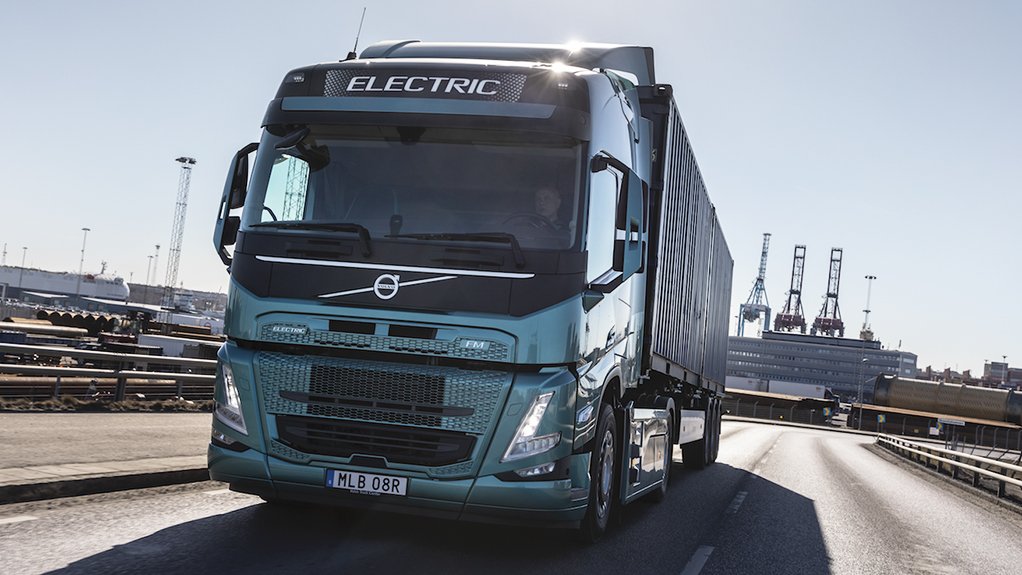With the start of sales of three new heavy-duty all-electric models this year, truck manufacturer Volvo Trucks believes the time is right for a rapid upswing in electrification of heavy-duty road transport.
This positive outlook is based on the ability of Volvo’s electric trucks to meet a broad variety of transport needs.
In Europe, almost half of all truck transport could be electrified in the near future.
Large national and international transport buyers are showing strong interest in electric vehicles (EVs). This is being driven by their own ambitious climate goals, as well as consumers demand for decarbonisation and cleaner transports.
“More and more transport companies are realising the need to start their electrification journey right now – both with the environment in mind and for competitive reasons to satisfy customer requirements for sustainable shipping. With our wide and deep offering, it is completely feasible for far more transport companies to go electric,” says Volvo Trucks president Roger Alm.
With the start of sales of the new electric Volvo FH and Volvo FM models, electrified transport is now possible not only for urban areas but also for regional traffic between cities. In addition, the new electric Volvo FMX model is creating new ways to make construction transport operations both quieter and cleaner.
Production of the new electric models for Europe will start in the second half of 2022. These join the Volvo FL Electric and Volvo FE Electric for urban transport that have been in serial production since 2019 for the same market. In North America, sales of the Volvo VNR Electric started in December last year. With the sales start of the new truck models, Volvo Trucks now has a line-up of six medium and heavy duty electric trucks, which makes it the most complete commercial electric truck range in the industry.
With the addition of the new products with higher load capacities, more powerful drivelines and range of up to 300 km, Volvo Trucks’ electric portfolio could cover about 45% of all goods transported in Europe today. This makes it possible to make an important contribution to lower the climate impact from road freight, which according to official statistics accounts for about 6% of total carbon emissions in Europe.
“There is huge potential to electrify truck transport in Europe, and also in other parts of the world, in the very near future. To prove this, we have set the ambitious goal to have electric trucks account for half of our sales in Europe by 2030. And these three new heavy-duty trucks we are now launching mark a giant step towards reaching this target,” notes Alm.
In addition to the EVs, Volvo Trucks’ electrification programme includes a complete eco-system with numerous service, maintenance and financing solutions, as well as other options that can help facilitate an easier and faster transition to electrified transport. The holistic setup will help customers stay productive and in control of their new electric transport fleet.
“These complete electrified transport solutions that we, along with our global network of dealers and service workshops, can provide will play a vital role in ensuring our customers’ success,” notes Alm.
Looking further ahead, even long-distance heavy-duty transport will be attainable with EVs. To meet the challenging demands for both high load capacity and a much longer range, Volvo Trucks plans to use hydrogen fuel cells to generate the electricity.
“This technology is developing rapidly and our ambition is also to make the long driving distances electrified, using both batteries and fuel cells. Our aim is to start selling fuel-cell electric trucks in the second part of this decade and we are confident we can make this happen,” concludes Alm.
Edited by: Zandile Mavuso
Creamer Media Senior Deputy Editor: Features
EMAIL THIS ARTICLE SAVE THIS ARTICLE
ARTICLE ENQUIRY
To subscribe email subscriptions@creamermedia.co.za or click here
To advertise email advertising@creamermedia.co.za or click here













